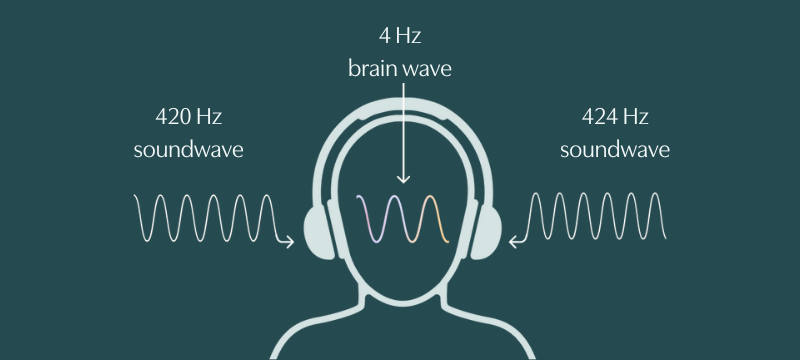Why Becoming Calm Is The Magic Key To Better Confidence

The dread of a looming presentation... First date jitters...

The key that unlocks confidence
The social gathering where your voice gets lost in the crowd…
When confidence takes a nosedive and is replaced by paralysing nervousness. Sound familiar?
But what if you could find a secret advantage?
A key you could unlock to navigate these situations with grace and self-assuredness?
Self-help sections are overflowing with tips for building confidence. But often, these strategies focus on external factors.
Power poses, assertive communication, or crafting the “perfect” version of yourself.
Yet, true confidence comes from a deeper wellspring. A sense of calm.
The science behind true confidence

Calm isn’t just a nice woo-woo feeling.
Becoming calm has a solid scientific basis for boosting confidence.
So let’s talk about the the fascinating interplay between your physical and psychological states.
Physiology of Poise
Picture yourself in a stressful situation. Your heart starts racing, your palms get sweaty, and your breath quickens.
This is your body responding to a surge of cortisol, the stress hormone.
Cortisol isn’t just about physical discomfort.
It can also cloud your judgment and make you feel less confident in your abilities.
Conversely, feeeling calm lowers cortisol levels and keeps you composed. Allowing you to project confidence with ease.
The Brain Benefits of Being Chill
Studies show that a calm mind activates the prefrontal cortex.
This region is believed to handle higher-order thinking, decision-making, and self-regulation.
When you’re stressed out, this critical area gets sidelined.
But when you achieve a state of calm? The prefrontal cortex takes charge.
This means you can approach challenges with a sense of control and confidence.
Psychology of Peace

The link between calm and confidence goes beyond biology.
When you’re calm, you’re less likely to be hijacked by negative self-talk.
You can observe your thoughts and emotions without judgment. Helping you cultivate more self-love.
This shift in perspective can also translate into greater confidence.
Plus, calmness can help foster focus. A scattered, anxious mind may struggle to concentrate on the task at hand.
But, in a state of calm, we can more easily hone our attention. Leading to a sense of mastery and accomplishment.
These small victories, in turn, reinforce our confidence in tackling future challenges.
Three Calming Techniques For Better Confidence
So we’ve established the science behind calm confidence.
Now let’s explore practical tools to cultivate this inner strength.
Think of these techniques as your personal confidence kit. Ready to use whenever you need a boost.
1. Meditones
Meditones are binaural beats mixed with beautiful ambient music.
When two slightly different frequencies of sound combine, they create a humming vibration.
And when you listen to this vibration in headphones? It creates a remarkable auditory perception called binaural beats.

The whole brain works in unison to create calm brain waves. Like the ones you produce during relaxation and restful sleep.
Meditones help soothe your nervous system and become calm. Without having to do a thing.
Plus, long-term use helps you form stronger relaxed neural pathways. Making it easier to become and stay calm.
2. Breathwork
This age-old practice is a powerful stress reliever for a reason.
When you focus on slow, deep breaths, you activate the parasympathetic nervous system. This is the body’s relaxation response.
You can do breathwork anywhere, anytime.
For example, extend your exhale for twice as long as your inhale for a quick calming response.
3. Progressive Muscle Relaxation (PMR)
PMR is a technique that involves tensing and relaxing different muscle groups in your body.
This is particularly good if you struggle with interoception.
Interoception is the sense that helps you understand your internal bodily sensations. Like tension, stress or tiredness.
As you let go of physical tension, you also release mental stress. Creating a profound sense of relaxation and calm.
Calm confidence for neurodivergents

Let’s face it. The world can be an overwhelming place for those of us who are neurodivergent.
Conditions like ADHD, autism, OCD and c-PTSD can make unfamiliar environments very stressful.
Social situations, with complex social cues and unspoken rules, can be particularly anxiety-provoking.
These challenges can significantly impact confidence and self-esteem.
The calming techniques mentioned above can be particularly helpful for neurodivergent people.
For example:
- meditones can help calm sensory overload
- breathwork may be a quick & effective way to manage social anxiety
- PMR can help you become more aware of your body, which may help you regain a sense of control.
By incorporating these tools into your daily routine, you can build a foundation of calm.
And this could translate into greater confidence when tackling life’s social and sensory challenges.
Calm confidence takes practice

Building a calm and confident self doesn’t happen overnight.
It takes dedicated practice, just like any other skill. Here’s how to get started:
Start Small:
Begin by incorporating calming techniques into your daily routine during low-pressure situations.
- practice breathwork in your room
- try progressive muscle relaxation before bed
- or use meditones to have restful sleep.
As you become more comfortable, you can use these tools in more challenging scenarios.
Like listening to meditones to calm travel anxiety.
Celebrate Small Wins:
Building confidence is a journey, not a destination.
Acknowledge and celebrate even the tiniest victories. Maybe you managed to stay calm during a stressful conversation with a colleague.
Perhaps you successfully used breathwork to navigate a social gathering without feeling overwhelmed.
Recognizing these small wins reinforces your progress. Plus motivates you to keep building your calm confidence.
Be Kind to Yourself:
The path to confidence isn’t always smooth.
There will be setbacks and moments where stress throws you off balance.
Remind yourself of your progress, and recommit to practising your calming techniques.
Takeaway
True confidence comes from within. By becoming calm, you tap into a wellspring of inner strength and self-assuredness.
When you can approach challenges with a cool head and a focused mind? You can navigate life’s situations with a little more grace.
So, take a deep breath, use these calming techniques, and embrace your inner confidence.
Feel calm and confident with the Restful app. Download for free on Google Play or the App Store today!